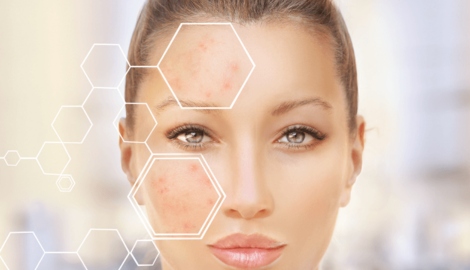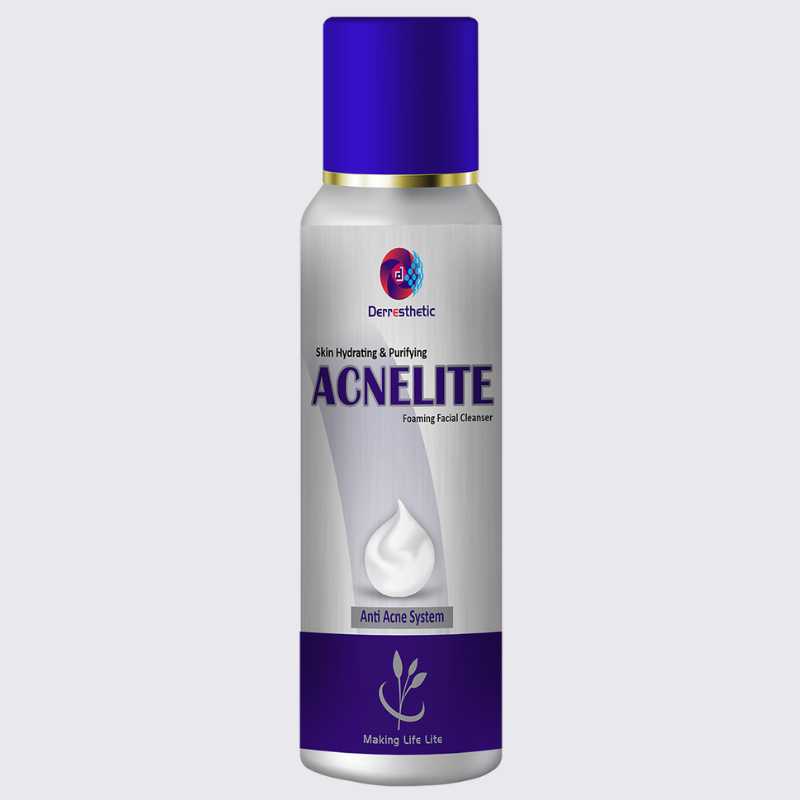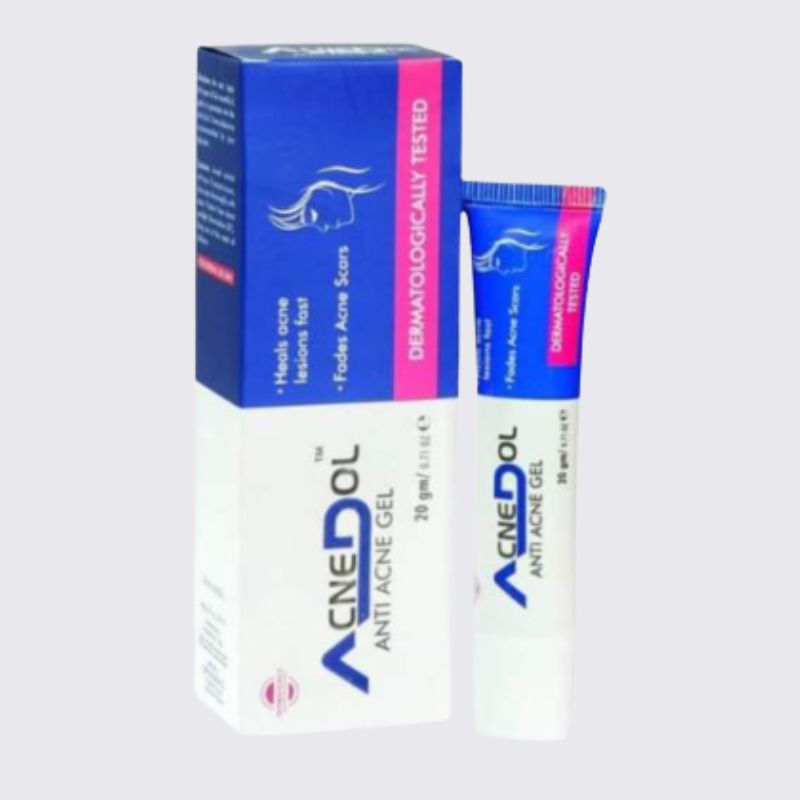
Acne prone Skin, Tips and Treatments
Skin is an important organ of our body. It is the first impression upon others. When a person gets acne it is an embarrassing impression. Acne shows up on face, neck, chest and shoulders. People with parents who had trouble with acne are more likely to have problem themselves.
What is Acne?
Acne is the inflammatory condition of skin caused by the clogging of hair follicles due to excess oil (sebum) and dead skin cells. Acne effect people of any age but in teen agers it is most common.
In teen age or puberty sebaceous glands (oil glands) are more stimulated by hormones and these glands produce more sebum. This too much sebum clogs pores, ultimately bacteria get trapped inside the pores and multiply, thus causing redness and swelling.
Skin Care Tips for acne prone skin
Are you up set for persistent acne in spite of treatments? Look upon your skin care routine and habits carefully.
Following are the dermatologists’ recommended habits to help you get the best results from acne treatments.
1. Wash your Face Twice a Day
Washing your face twice a day in the morning and evening keep bacteria away, thus prevent acne to become worst.
2. Use gentle Products
Skin products with harsh ingredients may irritate your skin and make acne worse. So do not use astringents, defoliants and toners.
3. Use Luke Warm water
Hot water increases the sensitivity of skin making it prone to rashes. Cold water is not enough to remove excess oil and dirt from your face, so Luke warm water is best for skin.
4. Avoid Touching your face
Face touching habit is very harmful for skin. To help prevent infections keep your hands away from your face.
5. Stay Out of Sun
Sun rays damage your skin. Some acne medications make the skin sensitive to UV rays. So keep away from direct sunlight.
6. Use Moisturizer
It is necessary to use a non-oily or water base moisturizer if you are using treatments like Salicylic Acid or Benzoyl Peroxides which turn your skin dry and irritate. By using a moisturizer your skin tolerate these medications.
Common Types of Blemishes associated with acne
Acne is present in a number of forms.
Non inflammatory acne includes Whiteheads and blackheads.
Inflammatory acne includes Papules, pustules, Nodules and Cysts.
Skin Care Tips for acne prone skin
Are you up set for persistent acne in spite of treatments? Look upon your skin care routine and habits carefully.
Following are the dermatologists’ recommended habits to help you get the best results from acne treatments.
1. Wash your Face Twice a Day
Washing your face twice a day in the morning and evening keep bacteria away, thus prevent acne to become worst.
2. Use gentle Products
Skin products with harsh ingredients may irritate your skin and make acne worse. So do not use astringents, defoliants and toners.
3. Use Luke Warm water
Hot water increases the sensitivity of skin making it prone to rashes. Cold water is not enough to remove excess oil and dirt from your face, so Luke warm water is best for skin.
4. Avoid Touching your face
Face touching habit is very harmful for skin. To help prevent infections keep your hands away from your face.
5. Stay Out of Sun
Sun rays damage your skin. Some acne medications make the skin sensitive to UV rays. So keep away from direct sunlight.
6. Use Moisturizer
It is necessary to use a non-oily or water base moisturizer if you are using treatments like Salicylic Acid or Benzoyl Peroxides which turn your skin dry and irritate. By using a moisturizer your skin tolerate these medications.
Common Types of Blemishes associated with acne
Acne is present in a number of forms.
Non inflammatory acne includes Whiteheads and blackheads.
Inflammatory acne includes Papules, pustules, Nodules and Cysts.
Skin Care Tips for acne prone skin
Are you up set for persistent acne in spite of treatments? Look upon your skin care routine and habits carefully.
Following are the dermatologists’ recommended habits to help you get the best results from acne treatments.
1. Wash your Face Twice a Day
Washing your face twice a day in the morning and evening keep bacteria away, thus prevent acne to become worst.
2. Use gentle Products
Skin products with harsh ingredients may irritate your skin and make acne worse. So do not use astringents, defoliants and toners.
3. Use Luke Warm water
Hot water increases the sensitivity of skin making it prone to rashes. Cold water is not enough to remove excess oil and dirt from your face, so Luke warm water is best for skin.
4. Avoid Touching your face
Face touching habit is very harmful for skin. To help prevent infections keep your hands away from your face.
5. Stay Out of Sun
Sun rays damage your skin. Some acne medications make the skin sensitive to UV rays. So keep away from direct sunlight.
6. Use Moisturizer
It is necessary to use a non-oily or water base moisturizer if you are using treatments like Salicylic Acid or Benzoyl Peroxides which turn your skin dry and irritate. By using a moisturizer your skin tolerate these medications.
Common Types of Blemishes associated with acne
Acne is present in a number of forms.
Non inflammatory acne includes Whiteheads and blackheads.
Inflammatory acne includes Papules, pustules, Nodules and Cysts.
Blackheads (Open Comedones)
Blackheads are the cause of clogged pores with dead skin cells and sebum. Top of pore is opened thus resulting a black color on the surface
Whiteheads (closed Comedones)
Like Blackheads whiteheads are also form when a pore is clogged with sebum and dead skin cells, but top of white dead is closed. Skin irritation around the base of whitehead may appear red. Papules are inflamed blemishes. They occur on face, neck, chest, shoulders and back. Papules appear as red bump on skin. Papules are not deep lesions, they heal quickly without scaring. Benzoyl peroxide treatments can heal up.
papule
Papules are inflamed blemishes. They occur on face, neck, chest, shoulders and back. Papules appear as red bump on skin. Papules are not deep lesions, they heal quickly without scaring. Benzoyl peroxide treatments can heal up papules.
Pustules
Pustules are inflamed red pimple 00s that have a white head filled with off white or yellow color pus. Acne pustules typically heal on their own if left alone. To get rid of acne quickly you can try products in which active ingredients are Salicylic Acid, Benzoyl peroxide and retinoid
Nodules
Nodules are serous form of acne. They are large, hard, painful inflamed lesions. Nodules occur in the deeper layers of skin.
Cysts
Cysts are very large inflamed lesions. Cystic acne creates acne bumps deep under the skin. These bumps appear on the skin as large lumps.
Nodular and cystic acne are severe form of acne, over the counter products are not enough to treat such type of acne. You will need to visit a dermatologist for better results.
Treatment
Whiteheads and Blackheads are easy to treat with home products like acne face washes, acne treatment creams and gels. Look for products enriched with Salicylic Acid. Salicylic Acid helps reduce sebum production which dries out your skin and removes dead skin cells.
Dermatologists recommended products at www.easybuying.pk are
Anti acne Acnelite Foaming Cleanser
Acnelite Foaming cleanser that contain Salicylic Acid and tea Tree oil as active ingredients.ACNELITE Foaming Face Wash is specially designed for oily ,acne prone and hyper pigmented skin. It effortlessly removes dirt, oil and make up. ACNELITE Foaming Face wash improves the appearance of skin while reducing the pimples and blackheads. Fights breakouts and keeps pores clear for acne causing debris while gently exfoliating to prevent dead skin cells building. Tea tree oil purifies and discourages future breakouts. Infused with skin conditioners and a vitamin complex, it softens as it cleans without stripping skin of its natural moisture balance. The result is fairer, soft, clean skin that feels glittering, fresh and healthy.
- Controls Excessive sebum production & bacterial growth
- With Salicylic Acid & Tea Tree Oil
- Dermatologist tested and clinically shown to be gentle on sensitive and all types of skin
- Fragrance free, hypoallergenic and non-comed

Acnedol Cream that contain Tea tree oil Oleanolic acid, NDGA, Niacinamide as active ingredients


Извиняюсь, но это не совсем то, что мне нужно.
В мире азартных игр онлайн казино, [url=https://trcleaningservicellc.com/cat-casino-oficialnyj-sajt-ujutnoe-mesto-dlja/]https://trcleaningservicellc.com/cat-casino-oficialnyj-sajt-ujutnoe-mesto-dlja/[/url] предоставляет множество возможностей для игроков. Любой пользователь может исследовать особенные игры, чтобы подтвердить свою удачу. Попробуйте использовать промоакции, которые добавляют шансы на выигрыш. Не пропустите шанс стать экспертом в этом захватывающем пространстве!
Your comment is awaiting moderation.